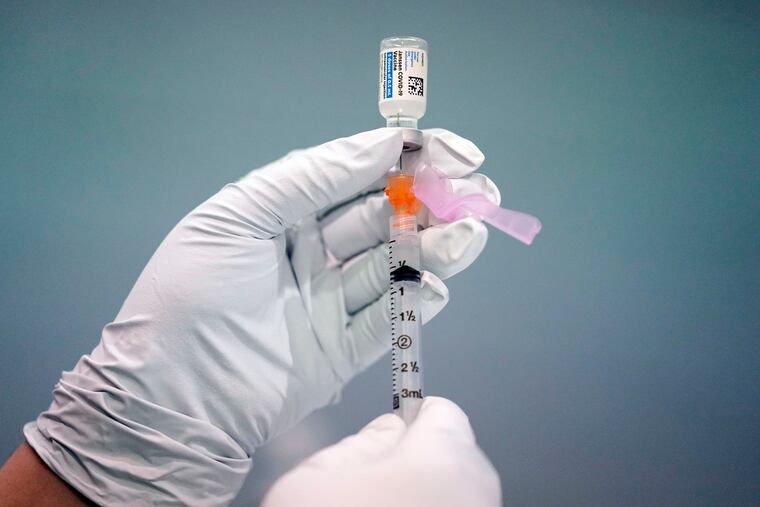Mandates convince more people to get vaccinated, Penn study finds
“All in all, our results suggest that fears about a mandate backfiring may be unfounded," study authors wrote.

Controversial as they are in some quarters, COVID-19 vaccine mandates appear to encourage more people to get the shots, a new study from University of Pennsylvania researchers suggests.
The study, published in Scientific Reports, synthesized research from four surveys in which 1,300 participants were asked about their intentions to get the vaccine — and compared how those intentions changed when participants were told the vaccine was mandated.
At the heart of the study is the theory of psychological reactance — “the tendency to want to do the opposite of what we’re told,” said Dolores Albarracín, a social psychologist at Penn and the study’s lead author. (Albarracín is a Penn Integrates Knowledge University Professor with appointments at the Annenberg School for Communication and the School of Nursing.)
The study authors wanted to address concerns that psychological reactance might undermine vaccine mandates — and the overall vaccine campaign — in the United States. “All in all, our results suggest that fears about a mandate backfiring may be unfounded,” they wrote.
In the study, researchers found that people were more likely to say they would get a vaccine if they were told the vaccine was mandated than if they were told they were free to choose to get vaccinated. This held true across racial and ethnic groups. Even people with a tendency toward psychological reactance — people who tend to balk at being told what to do — were more likely to say they’d get the shot if they were told it was mandatory.
The study was released as vaccine mandates around the country, and in the region, are beginning to take effect. Philadelphia mandated that health-care workers be vaccinated by Oct. 15.
Penn’s health system required employees to be vaccinated by Sept. 17, and last month said that 99% of staffers had complied. At Temple Health, 98% of employees had complied with the city’s mandate by last Friday; 160 holdouts without vaccine exemptions were set to be placed on unpaid leave. If they’re not vaccinated by Oct. 29, they’ll be fired, officials there said.
At the beginning of October, representatives for the city’s home health aides said that they estimated about half of Philadelphia’s 50,000 aides were unvaccinated. Days later, with a mandate deadline looming, about 79% of city nursing home staff were vaccinated. Some nursing homes told the Inquirer that their vaccination rates had increased after announcing the mandate.
While conducting the study, Albarracín said she was surprised by how “consistently positive” mandates were received among survey participants. “Even those whose personality makes them more likely to be disagreeable [about the vaccine] formed stronger intentions to vaccinate in a situation that requires it for work.”
It may seem logical that people would get a shot in order to keep their job, but in the current employment climate, many workplaces are worried about recalcitrant employees taking their skills to a position where vaccines aren’t mandated. This new study suggests the mandate actually legitimizes the vaccine decision for some people.
“For people with lower tendency to react against being controlled, the mandate makes them feel that the vaccine will have positive benefits, that they will be better received by others, and even that the vaccine is less risky,” she said. “For those who have a tendency to experience psychological reactance, they just comply and get vaccinated.”
Staff writers Stacey Burling and Jason Laughlin contributed to this report.